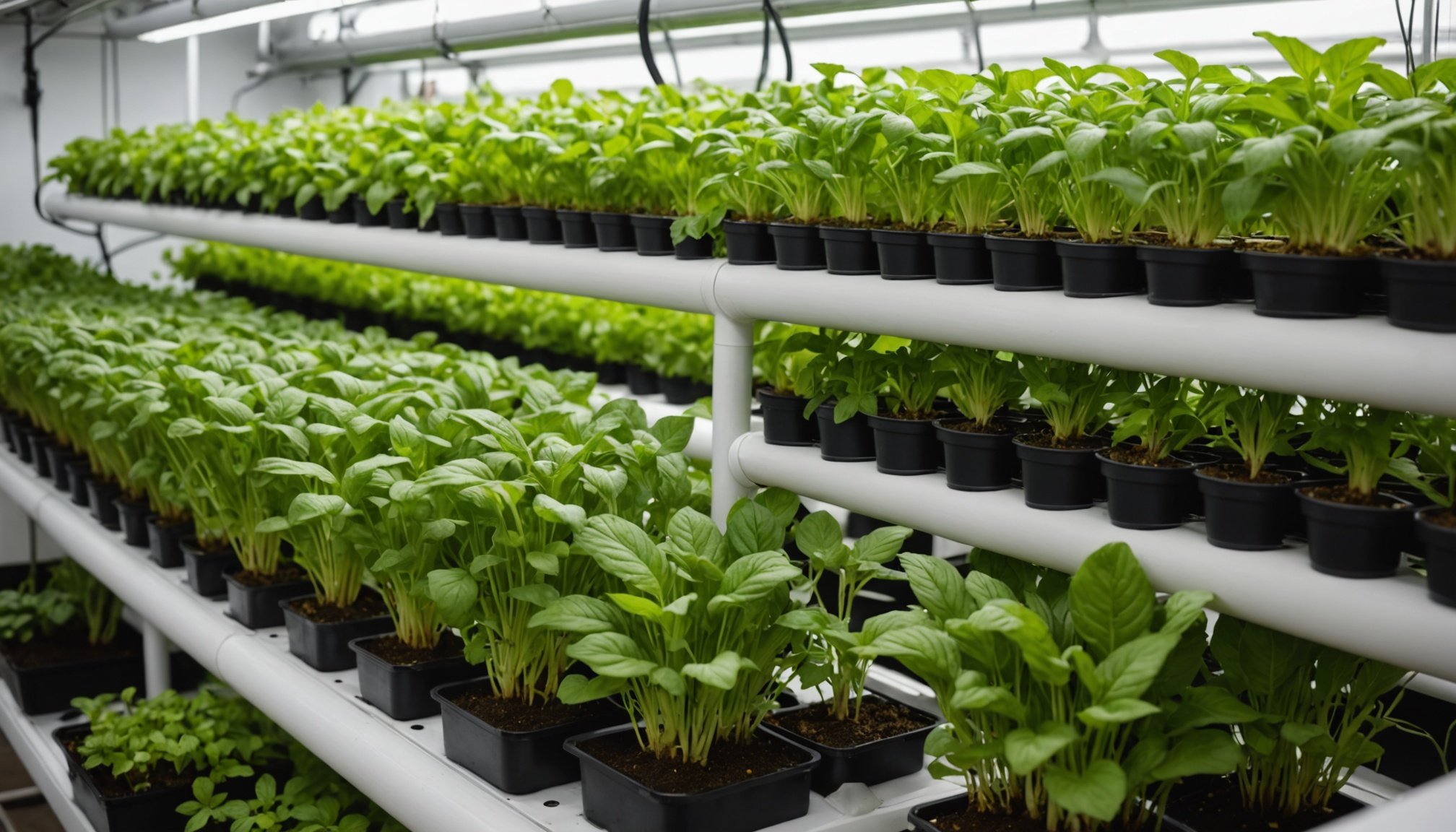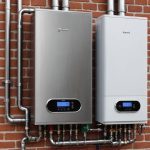Indoor hydroponics offer a revolutionary way to enhance your herbal harvest, especially in the UK’s unpredictable climate. With the right strategies, you're not just growing plants; you’re cultivating a sustainable adventure. Discover innovative techniques that maximize space and yield, while ensuring your herbs flourish year-round. Whether you're a seasoned green thumb or a curious beginner, this guide will empower you to transform your indoor garden into a thriving oasis. Get ready to unlock the full potential of hydroponic gardening!
Understanding Hydroponic Systems
Hydroponic systems are revolutionising indoor gardening by providing a soil-free method of growing plants. These systems offer several benefits, such as faster growth rates, higher yields, and the ability to garden indoors regardless of the season. Hydroponic techniques allow for precise control over nutrient delivery, ensuring that plants receive the optimal balance for growth.
Avez-vous vu cela : Mastering Companion Planting for Your Cozy UK Homestead: A Step-by-Step Guide
There are various types of hydroponic systems suitable for growing herbs, each with its own unique advantages. The Nutrient Film Technique (NFT) involves a shallow stream of nutrient-rich water flowing over the roots, ideal for lightweight herbs like basil and mint. Deep Water Culture (DWC) suspends plant roots in oxygenated nutrient solutions, making it perfect for larger herbs such as rosemary. Finally, the Ebb and Flow system periodically floods the growing area with nutrients, then drains away, supporting a wide range of herb varieties.
Essential equipment for indoor hydroponic gardening includes grow lights, nutrient solutions, and pH meters. Grow lights simulate sunlight, crucial for photosynthesis in indoor settings. Nutrient solutions provide essential minerals and elements, while pH meters help maintain the correct acidity levels for optimal nutrient absorption. By understanding and implementing these hydroponic systems, indoor gardeners can enjoy fresh herbs year-round with minimal environmental impact.
A lire aussi : Maximizing Sunlight: Expert Tips for Designing the Perfect Greenhouse Layout in the UK
Selecting the Right Herbs for Indoor Growth
Choosing the best herbs for hydroponics is crucial for successful indoor gardening. Some herbs naturally thrive in hydroponic systems, offering robust growth and high yields. Among the top contenders are basil, mint, and parsley, each with specific growth requirements.
Top Herbs for Hydroponic Systems
-
Basil: Known for its aromatic leaves, basil is a favourite among indoor herbs. It requires a warm environment and benefits from consistent light exposure. Hydroponic systems provide the ideal conditions for basil, promoting rapid growth and flavourful leaves.
-
Mint: This versatile herb is perfect for hydroponic cultivation due to its adaptability and resilience. Mint prefers a cooler climate compared to basil and thrives with moderate light. Its rapid growth makes it a popular choice for indoor gardeners.
-
Parsley: Parsley is a staple in many dishes, and its ability to grow well in hydroponic systems makes it an excellent choice. It requires a balance of light and moisture, and hydroponics allows for precise control over these factors.
Considerations for Herb Selection
When selecting herb varieties, consider their culinary use and growth requirements. Herbs like basil and mint are versatile in cooking, while parsley adds freshness to dishes. Understanding each herb's needs ensures a bountiful indoor harvest.
Climate Considerations for Hydroponics in the UK
Understanding the UK climate is crucial for successful indoor gardening, particularly when using hydroponic systems. The UK's temperate climate, characterised by mild summers and cool winters, can affect indoor gardening conditions, requiring adjustments to ensure optimal plant growth.
Indoor gardeners must maintain ideal temperature and humidity levels to mimic the natural environment herbs thrive in. Typically, herbs flourish at temperatures between 18-24°C. Humidity should be kept around 40-60% to prevent mould and ensure healthy growth. Monitoring these environmental factors is essential for a thriving hydroponic garden.
Lighting is another critical aspect of indoor gardening in the UK, where natural sunlight can be limited, especially during the winter months. Grow lights are indispensable in a hydroponic setup, as they provide the necessary light spectrum for photosynthesis. Options include LED, fluorescent, and high-intensity discharge (HID) lights, each offering different benefits. LED lights are energy-efficient and long-lasting, while fluorescent lights are cost-effective and suitable for small setups. HID lights, though more expensive, offer intense illumination for larger gardens.
By carefully considering these environmental factors, UK gardeners can create optimal indoor gardening conditions, ensuring the success of their hydroponic systems and the health of their herbs.
Step-by-Step Hydroponic Gardening Strategies
Embarking on hydroponic gardening can be a rewarding venture, especially when growing herbs indoors. To ensure success, follow these essential tips and strategies.
Preparing Your Hydroponic System
Begin by setting up your hydroponic system with care. Ensure all components are clean and functional. Regular maintenance is crucial; check pumps, reservoirs, and tubing for any blockages or leaks. Maintaining a sterile environment helps prevent diseases.
Germination and Planting Techniques for Herbs
Start with quality seeds or seedlings. For germination, use a growing medium like rock wool or coco coir, which retains moisture and supports root development. Place seeds in a warm, well-lit area to encourage sprouting. Once seedlings are established, transfer them to your hydroponic system, ensuring roots are adequately submerged in the nutrient solution.
Nutrient Solutions and Their Application
Nutrient solutions are the lifeblood of hydroponic gardening. Select a balanced formula specifically designed for herbs. Regularly monitor and adjust the concentration to match the growth stage of your plants. Use a pH meter to maintain the solution's acidity within the ideal range of 5.5 to 6.5, ensuring optimal nutrient absorption.
By adhering to these gardening strategies, you can cultivate a thriving indoor herb garden, enjoying fresh produce year-round.
Troubleshooting Common Hydroponic Issues
Navigating the world of hydroponic gardening can be rewarding, but it does come with its set of challenges. Understanding and addressing these hydroponic problems is key to maintaining a healthy indoor garden.
Identifying and Resolving Nutrient Deficiencies
One common issue is nutrient deficiencies, which can manifest as discoloured leaves or stunted growth. To tackle this, regularly monitor the nutrient solution's pH and concentration. Adjustments may be necessary to ensure plants receive adequate nutrients. Using a balanced formula specifically designed for herbs can help prevent deficiencies.
Addressing Pest Control in an Indoor Environment
Even indoor gardens are not immune to pests. Common culprits include aphids and spider mites, which can damage plants. Implementing pest control measures, such as introducing beneficial insects or using organic sprays, can effectively manage infestations. Maintaining a clean environment also reduces the risk of pest problems.
Solutions for Common Growth Problems in Hydroponics
Growth issues, such as root rot or wilting, can arise from improper water management. Ensure the hydroponic system is well-aerated to prevent waterlogging. Regularly check for blockages in the system that could affect nutrient flow. By staying vigilant and applying these troubleshooting tips, gardeners can overcome indoor gardening challenges and cultivate a thriving hydroponic garden.
Recommended Products for Hydroponic Success
Embarking on hydroponic gardening requires the right hydroponic supplies to ensure a fruitful indoor garden. Selecting the appropriate gardening tools and products can significantly impact your herb growth and overall system efficiency.
Must-Have Tools and Supplies
To begin, invest in essential hydroponic supplies such as grow lights, pH meters, and air pumps. Grow lights, particularly LED options, provide the necessary spectrum for photosynthesis, crucial in indoor settings. pH meters help maintain the optimal acidity levels, ensuring nutrient absorption. Air pumps keep the nutrient solution oxygenated, preventing root rot.
Best Nutrient Solutions
Choosing the right nutrient solution is pivotal for herb vitality. Opt for balanced formulas specifically designed for hydroponics. These solutions offer a mix of essential minerals, promoting robust growth and flavourful herbs. Regularly monitoring and adjusting the concentration according to plant needs is vital for achieving the best results.
Reviews of Popular Hydroponic Systems
Several hydroponic systems have garnered positive reviews for their efficiency and ease of use. Systems like the AeroGarden and General Hydroponics offer user-friendly setups and reliable performance. These systems cater to both beginners and seasoned gardeners, providing flexibility and scalability for various indoor gardening needs. By equipping yourself with these recommended products, you can enhance your hydroponic gardening experience and ensure a thriving indoor herb garden.
Community Resources and Further Learning
Engaging with hydroponic forums and gardening communities is invaluable for both novice and experienced gardeners. These platforms offer a wealth of shared knowledge, from troubleshooting tips to innovative growing techniques. Websites like Reddit's Hydroponics community and UK-based forums provide spaces to ask questions and share experiences, fostering a collaborative learning environment.
For those seeking structured educational resources, several books and websites offer comprehensive insights into hydroponic systems. Titles such as "Hydroponics for Beginners" and "The Hydroponic Bible" cover everything from system setup to advanced nutrient management. Online platforms like Coursera and Udemy offer courses that delve into the science and practice of hydroponics, suitable for varying levels of expertise.
Local workshops and classes in the UK present hands-on learning opportunities. Many garden centres and agricultural colleges host sessions tailored to hydroponic enthusiasts. These workshops often cover practical aspects, such as system maintenance and plant care, providing a chance to learn directly from experts. By tapping into these educational resources, gardeners can expand their knowledge and skills, ensuring a successful and rewarding hydroponic gardening experience.











